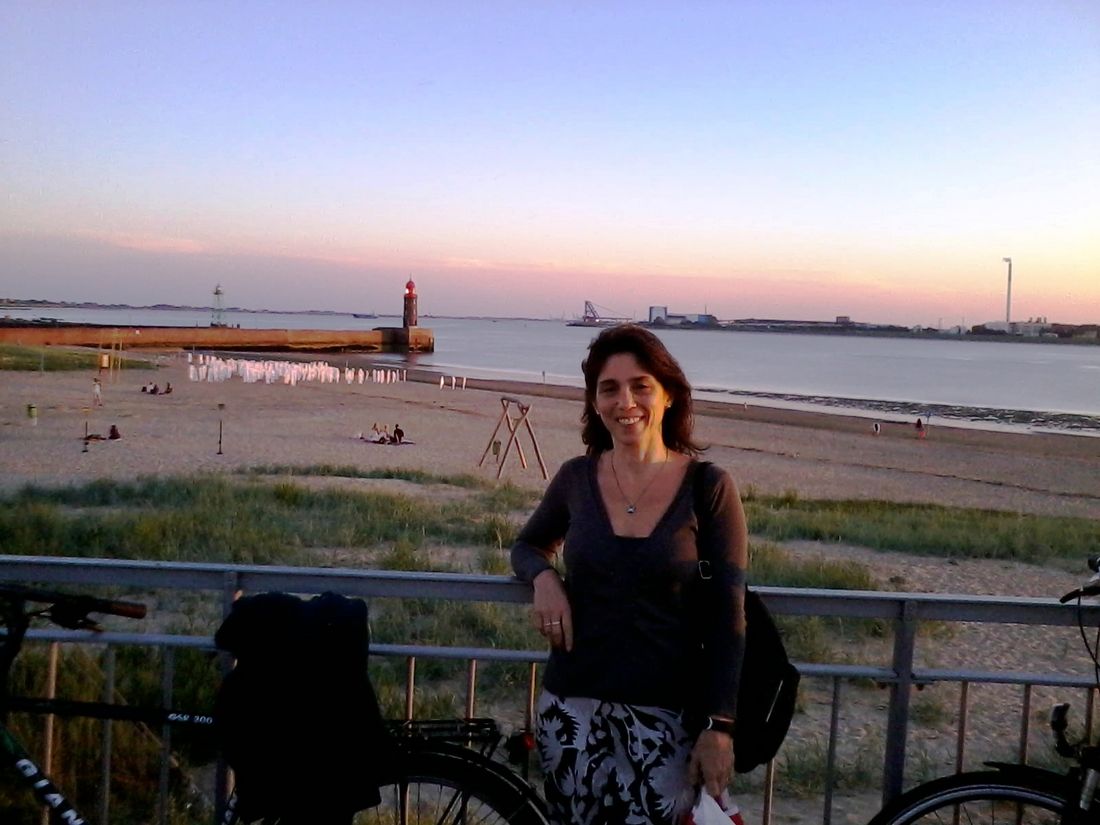
Susana Vazquez at the AWI in Bremerhaven © S. Vazquez
Antarctic microbes do play a role in keeping their environment clean!
Antarctica is thought of as a pristine environment, and we are committed to keeping it that way. However, human activities go hand in hand with the risk of contamination. If pollutants reach the soil and water, the entire natural biota can be compromised. Here is where microbes come into the scene. To know a bit more about how they deal with diesel contamination in Carlini Station, I spent three months working at the AWI.
Microorganisms have usually been overlooked and considered only for their role as primary producers, as food for other organisms or for their participation in the geochemical cycles in the environment. But they do much more for us! To keep the wheel turning by recycling organic matter and they try to restore the balance when there is perturbation to the environment. And this is where I decided to focus my research in Antarctica.

The story started four years ago, during a SCAR meeting in Buenos Aires, Argentina. Together with Dr. Elisabeth Helmke from the AWI we agreed to study diesel contamination in Carlini Station and the role that antarctic microorganisms might play in the degradation of hydrocarbons. I was very enthusiastic about bringing together the access that I have to valuable samples from an accidental spill with the expertise in molecular biology of Dr. Elisabeth Helmke, to study bacterial communities. I visited her lab in 2011 and 2012 and we obtained nice results from DGGE fingerprinting and clone libraries of 16S rRNA genes. Last year we had almost all our soil samples sequenced by 454 amplicon-sequencing technology and the metagenomics with Illumina shotgun-sequencing from one relevant sample. This was a great experience for me, learning a lot and having access to methods we had never applied or could even afford in my lab. We gathered a lot of data, that needed specialized computing analysis and this is what I went to do this time, plus start the preparation of our first manuscript.
I felt like I had never left, sitting in the Container, no distractions from paperwork or students as I have at home, and those magical moments in which we paused and had a coffee and chocolate cookies, our ritual every morning and afternoon. We were lucky to get Stephan Frickenhaus and Stefan Neuhaus joining us and helping with bioinformatics. Together, we broadened the spectrum of what we found out before about soil bacterial communities quickly reacting to the pollutants despite the cold temperatures and we knew also that Potter Cove sediments are clean for now. But the hydrocarbons are still underground and it seems that without intervention the natural attenuation in Carlini is very slow. We hope in the future we find out more about the fate of pollutants in the ground and how to help the native microbiota to eliminate them before they reach the sea and affect the biota.
I would like to thank Doris Abele and Allan Cembella for making my stay possible, to Nancy Lange for being so kind and helpful and to Walter Mac Cormack for the chance to work in Antarctica and be part of his team. I am grateful to the EU IMCONet project, the AWI, IAA and CONICET for the support and the chance to be part of this wonderful network of excellent scientists.
In Bremerhaven, once more I had the chance to meet old friends from my first expeditions in Antarctica and other Argentineans being there because of this cooperation. We had fun, enjoyed the summer, travelled a bit and had wonderful moments together.
Microbes are amazing, to study them and link it with other projects is even better and to do it in such a nice environment and with friendly and professional colleagues is all I could dream of!
I look forward coming back next year!
Susana

